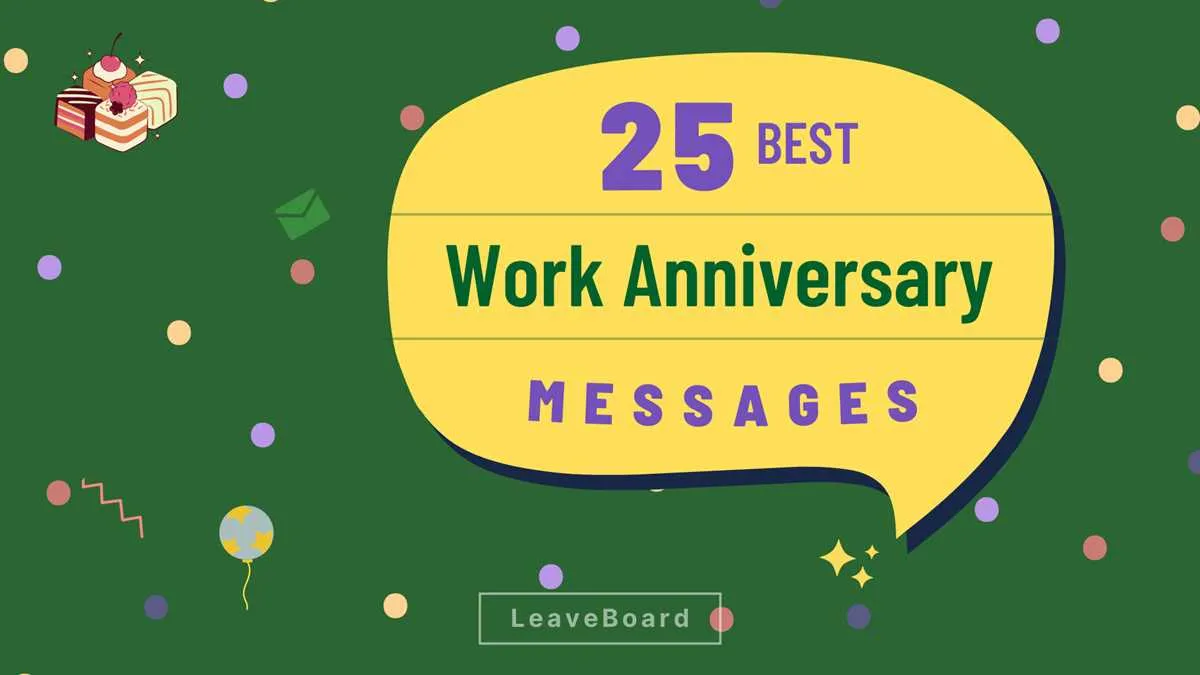Message Ideas to Congratulate Colleagues on Their Work Anniversary with Warmth and Respect

Send a message that shows you noticed the occasion. A short note like “Happy work anniversary! Your dedication doesn’t go unnoticed.” goes further than silence. Keep it personal–mention a specific project, achievement, or habit they’re known for.
Skip templates. If your colleague always solves tricky problems, say so: “You’ve saved our deadlines more than once–thanks for being that person!” If they bring good energy to meetings, highlight that. People remember what feels sincere.
Choose your tone based on your relationship. A direct manager might write, “Another year of strong contributions–thank you for being someone we rely on.” A teammate might go with, “I’ve learned a lot working with you–here’s to more shared wins.” Avoid overused praise. Precision means more than enthusiasm.
Sign off with something human. A simple “Congrats again!” or “Here’s to what’s next.” keeps the message warm. The goal isn’t to impress. It’s to make someone feel seen and appreciated at the right time.
Message for Work Anniversary Wishes
Congratulate directly and include the number of years to add weight: “Congratulations on 5 incredible years with the team!” Specificity makes the message feel personal, not generic.
Mention a recent accomplishment to reinforce their impact: “Your leadership during the Q3 product launch raised the bar for everyone.” This highlights their contribution without vague praise.
Add a sentence about a shared moment or quality that stands out: “Your calm approach during tight deadlines always brings stability.” Personal detail increases emotional value.
Keep the tone casual yet appreciative. Avoid overly formal phrases or excessive enthusiasm. Short and sincere beats long and embellished.
Close with forward-looking encouragement: “Looking forward to more wins ahead!” It shows that their future matters as much as their past.
How to Write a Personal Yet Professional Work Anniversary Message
Begin with a specific detail. Mention the exact number of years the colleague has been with the company–this adds sincerity and shows attentiveness. For example: “Congratulations on 5 years with us!” immediately communicates recognition without overcomplicating the message.
Reference a clear achievement or trait that sets the person apart. Skip general praise and be precise: “Your leadership during the Q4 transition set a new benchmark for team collaboration.” Avoid vague compliments that could apply to anyone.
Maintain a friendly tone without slipping into casual language. Use direct sentences. For instance: “Your work ethic raises the standard for everyone on the team.” This sounds both respectful and personal.
Include a forward-looking statement that ties into shared goals: “Looking forward to seeing your impact on the new product rollout.” Keep it grounded in actual plans rather than vague future hopes.
Close with a clean, confident sign-off that fits your usual communication style. Avoid exaggeration. A simple “Thanks for all that you do–happy work anniversary!” works better than flowery language.
Skip emojis unless they’re standard for your internal communication. Avoid templates. Even short messages benefit from a few words tailored to the recipient’s contributions.
Examples of Work Anniversary Wishes for Different Roles and Relationships
Tailor your message to the person’s role and your relationship. For a close colleague, keep it casual: “Another year of brilliance from your side! Thanks for making work lighter with your sharp mind and quick humor.”
For a manager, be professional but warm: “Congratulations on another year of leadership. Your clear direction and steady support make our team stronger every day.”
When addressing a team member, be encouraging: “Happy work anniversary! Your consistency and attention to detail keep everything running smoothly.”
For an executive, keep it concise and respectful: “Marking another successful year–your guidance continues to move this company forward with purpose.”
To recognize a remote coworker, add a note of connection: “Even across the distance, your presence and reliability stand out. Happy anniversary–glad we get to work together!”
When writing to someone you rarely interact with, stay neutral but friendly: “Wishing you continued success on your work anniversary. Your contribution doesn’t go unnoticed.”
For someone in a support role, show appreciation directly: “Thanks for keeping things running behind the scenes–your quiet consistency makes a big difference. Congrats on your anniversary!”
If it’s a peer in another department: “Another year of solid collaboration–your insights always help clarify things. Happy work anniversary!”
When and How to Send Work Anniversary Messages in a Corporate Setting
Send messages on the morning of the employee’s anniversary date–ideally before 10 AM. This small timing detail increases the chance the message is read before meetings pile up. For larger teams, set calendar reminders at least a week ahead to avoid missing dates.
- Use internal communication tools: Slack, Microsoft Teams, or email work best. Public messages in team channels boost morale and recognition. Reserve private messages for sensitive or low-profile preferences.
- Match the message tone to company culture: Keep it warm and concise in formal environments. Add a touch of humor or personalization if the team culture supports it.
- Avoid templates: Refer to specific achievements, team contributions, or milestones. One sentence that feels personal beats five that feel generic.
- Manager messages carry more weight: Encourage direct supervisors to send the message personally. HR can support by drafting suggestions but should not replace the direct relationship.
- Don’t combine it with other announcements: Standalone messages show the milestone is valued, not a checkbox between updates.
Pre-schedule messages for remote employees in different time zones. If time zones make same-day recognition difficult, acknowledge the anniversary a day before rather than after.
If sending a gift or card, time the delivery to arrive the same day. Include a handwritten note if possible–these have a stronger emotional impact than typed messages.